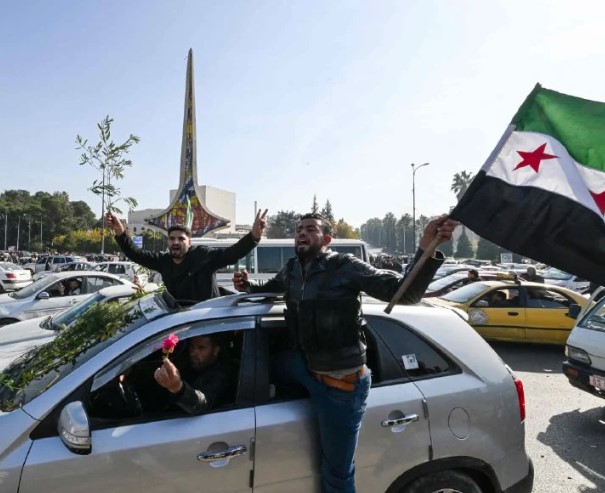Syria has been through many challenges over the past few years. The country has suffered from years of war, with many parts of it devastated and many people displaced. A new regime has recently taken control in Syria, led by a group called Hayat Tahrir al-Sham (HTS), which was once linked to al-Qaeda. This new leadership, headed by Abu Mohammed al-Jolani, has a complex past. Despite his group’s history, the new leaders are now working to present Syria’s new government as peaceful and open to international cooperation.
New Leaders: Syria’s Leadership Takes Charge
HTS has quickly gained control of key parts of Syria, including the city of Aleppo and the capital, Damascus. The new leaders have tried to distance themselves from the radical actions of al-Qaeda and have even called for reform. The international community is watching closely as HTS seeks recognition and aims to rebuild Syria. Recently, al-Jolani met with several foreign diplomats, including a representative from the United Nations, and he has expressed hope that Syria’s economic situation will improve soon. However, many countries are cautious and are concerned about the group’s past actions, particularly its ties to terrorism.
The Diplomatic Efforts of New Leaders to End Sanctions
One of the biggest obstacles facing Syria is the international sanctions that have been placed on the country. These sanctions, particularly the US’s 2019 Caesar Act, have severely impacted Syria’s economy. The sanctions were designed to punish the Assad regime and prevent the government from continuing its violent actions during the civil war. They have led to high levels of poverty, with many Syrians unable to access basic resources like food, medicine, and clean water.
However, with the fall of Assad’s regime and the rise of HTS, there are some signs of diplomatic change. Al-Jolani has met with foreign officials in an effort to end these sanctions. Recently, the UN special envoy for Syria said that the international community might consider lifting sanctions to help rebuild the country. European officials have also expressed willingness to engage with the new government if Syria moves in the “right direction.” Some countries, like the United States and the United Kingdom, have also reached out to the new leadership, hoping that it will bring stability to the country. These diplomatic moves could be an opportunity for Syria to recover economically and rebuild its infrastructure.
The Risks of Engaging with a Controversial Group
Despite the potential benefits of engaging with Syria’s new leadership, there are significant risks. HTS’s past actions, including its connection to al-Qaeda, have led many countries to designate it as a terrorist organization. The United States, for example, placed a bounty on al-Jolani’s head in 2018, and the group is still considered a threat by many nations. While HTS has tried to distance itself from al-Qaeda and change its image, it remains a highly controversial group.
Many experts caution that interacting with HTS could lead to further instability in the region. While the fall of Assad’s government might create an opportunity for peace, it could also lead to power struggles and violence if the new leaders fail to gain broad support from the Syrian people. The international community must be careful in its approach to the new Syrian regime to avoid strengthening a group with a history of extremism.
Challenges and Uncertainty Under New Leadership
HTS has promised to reform. However, it is unclear whether they can be trusted to follow through. The United States has already begun communicating directly with HTS. Some critics argue that this could send the wrong message. They fear it may encourage other extremist groups. The US government has said it will continue monitoring HTS’s actions to determine if they are genuinely committed to peace.
Syria’s economy has been in ruins for years, and it is uncertain whether the new regime can rebuild it. The country faces enormous challenges. These challenges include the need for humanitarian aid. The rebuilding of cities is also crucial. Restoring basic services is a major priority. While the new leadership may open the door to international cooperation, they must do much work to ensure that Syria recovers and avoids falling back into violence.
The ongoing situation in Syria is complex, and the risks and opportunities presented by the new leadership are still unfolding. While the potential for peace and stability exists, the country’s future depends on how well the new government can address the challenges of governance, security, and economic recovery.

